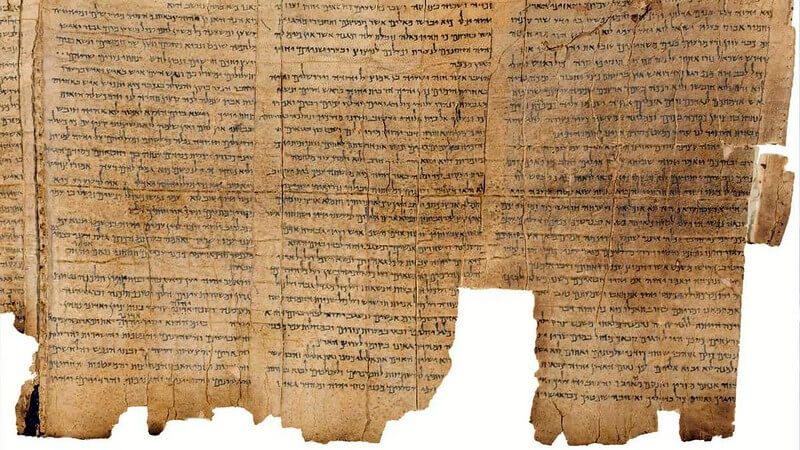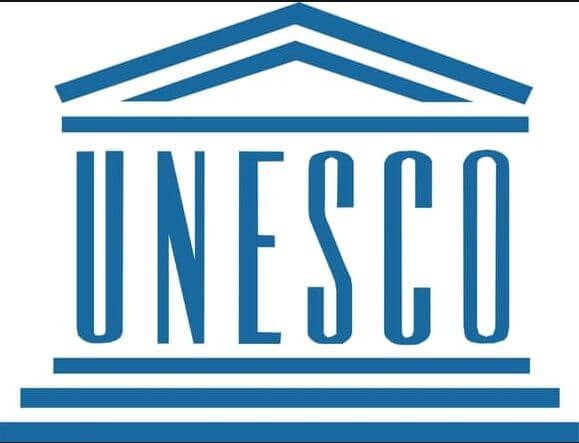The United Nations Educational, Scientific and Cultural Organization – UNESCO – says its mission is “to build peace through international cooperation in Education, the Sciences and Culture.” This organization, which should be a prestigious arm of the UN, claims the lofty goal of “promoting cultural heritage and the equal dignity of all cultures” to “strengthen bonds among nations.”
On the surface, UNESCO does that by sponsoring programs promoting education around the world including worthy efforts in education about the Holocaust, the fight against violent extremism, improving education for girls, support of scientific investigation of climate change and defense of media freedoms.
Join the fight for Israel’s fair coverage in the news
The UNESCO War on Israel
However, UNESCO has not been able to escape the ingrained United Nations’ anti-Israel bias and organizational mismanagement.
UNESCO’s anti-Israel focus gained momentum when the Palestinian Authority obtained full membership in 2011, despite being only an observer member of the UN. Israel’s then ambassador to the UN, Nimrod Barkan, said “UNESCO deals in science, not in science fiction,” pointing out that Palestine as a state was not recognized by the wider UN and that UNESCO acted on a “political subject outside of its competence.”
Related reading: Israel and the UN – A Good Relationship That Turned Toxic
UN Watch, a non-governmental organization (NGO) that monitors the UN, reported an accelerated pace of anti-Israel moves after the Palestinians joined, specifying that “between 2009-2014, UNESCO adopted 46 resolutions against Israel; one on Syria; and zero on Iran, Sudan, North Korea, or any other country in the world.”
Generally instigated by the Palestinians and supported by Arab members of the organization, the resolutions erase Jewish history and the Jewish people’s connection to World Heritage Sites in the Holy Land. No other country in the world received any similar negative attention except for Israel.
UNESCO’s Israel Resolutions Defy Reality
UNESCO had voted several times to censure Israel with wording that described Jewish holy sites in Jerusalem and Hebron as being Palestinian. Israeli Ambassador Carmel Shama-Hacohen, called the resolutions attempts “by the Palestinians to rewrite history and get rid of our connection to our land.”

The most egregious examples include:
- UNESCO in 2016 adopted what Al-Jazeera openly calls an “anti-Israel resolution” referring to the site of the ancient Jewish temple in Jerusalem only by its Moslem name Haram al-Sharif. UNESCO executive board chairman Michael Worbs was forced to say he was “sorry” for what happened.
- Palestinians used UNESCO in 2016 to try removing the Dead Sea Scrolls from Israel, saying the ancient Jewish religious manuscripts discovered during the 1940s and 50s in the Judaean Desert are “Palestinian” and belong to them.
- In 2017 UNESCO declared the Hebron site revered by both Jews and Moslems as the burial place of the biblical patriarchs Abraham, Isaac and Jacob and their wives as a “Palestinian World Heritage site in danger.” Israeli Prime Minister Benjamin Netanyahu condemned the organization for using its political clout to rebrand the world heritage site as exclusively Palestinian.

In 2017 the United States withdrew from UNESCO, saying the decision “reflects US concerns with mounting arrears at UNESCO, the need for fundamental reform in the organization, and continuing anti-Israel bias at UNESCO.” Israel followed the Americans in quitting UNESCO.
It was the second time the US ditched the controversial UNESCO, having withdrawn in 1984 when Washington accused the UN body of straying from “its original purposes and principles.” During the Cold War era, UNESCO was wracked by east-west politics and what the State Department called “hostility toward the basic institutions of a free society.” The US subsequently rejoined the body in 2003.
Related reading: A Guide to Israel’s UNESCO World Heritage Sites
Can UNESCO Be Rehabilitated?
 Despite the agency’s less-politicized work in education, science and culture, the press has not been kind to UNESCO.
Despite the agency’s less-politicized work in education, science and culture, the press has not been kind to UNESCO.
- Time magazine described UNESCO as “a bloated bureaucracy with a taste for the good life.”
- In detailing the 2017 departure of the US and Israel, Reuters noted that UNESCO “has struggled for relevance as it becomes increasingly hobbled by regional rivalries and a lack of money.”
- Joseph Nhan-O’Reilly, a senior official with Save the Children UK, told the Devex media website that many donors had been affected, saying: “Everyone knows that UNESCO is not doing that well . . . it has lost the confidence of lots of stakeholders.”
UNESCO’s obsession with Israel also duplicates the bias in the General Assembly, Security Council and Human Rights Council — where one-sided political resolutions focused against Israel constantly sidetrack the international institution.
Related reading: Israel and the Innate Bias of the UN Security Council
 Amongst all the talk of the badly needed reforms at the UN, the 2011 UNESCO decision to admit the Palestinians as a full member was taken with the full knowledge it would result in the cutoff of US funding.
Amongst all the talk of the badly needed reforms at the UN, the 2011 UNESCO decision to admit the Palestinians as a full member was taken with the full knowledge it would result in the cutoff of US funding.
The US had been paying more than 22 percent of UNESCO’s annual budget; American and Israeli diplomats insisted that Palestinian membership was a question for the UN General Assembly to decide only after direct Israeli-Palestinian negotiations leading to peace, and not by votes in UN sub-bodies.
It is very unlikely UNESCO would change the Palestinian’s status to “non-member observer” in order bring back US-funding.
Picking Fights Wisely?
The political attacks on Israel triggering the US withdrawal and massive budget shortfalls continue to thwart those in UNESCO who are working apolitically to improve education, science and culture around the world.
Columnist Shmuel Rosner observed that Israel’s withdrawal from UNESCO was a diversion from the long-term policy of “staying a (UN) member and fighting for Israel’s interests” – the prime example of which is the 1991 cancellation of the UN’s vile resolution that equated Zionism with racism.
“Several United Nations agencies have similar anti-Israel tendencies,” Rosner noted. “In fact, the entire United Nations is biased against Israel… while other countries, guilty of much worse, barely get mentioned for censure.”
Given that the UN’s “shameful record makes clear that it is obsessed with Israel,” for now, it appears that Israel has decided it is not a priority to have to spend most of its resources fighting the politics at UNESCO instead of promoting education, science and culture.
Enjoyed reading this article? Follow the Israel In Focus page on Facebook to read more articles explaining Israel’s history, politics, and international affairs. Click here to learn more!
Featured image: vectors via Free Vector: Jerusalem CC BY-NC Bert Kaufmann; Dead Sea scroll CC BY Larry Koester; US flag CC0 pxfuel;

